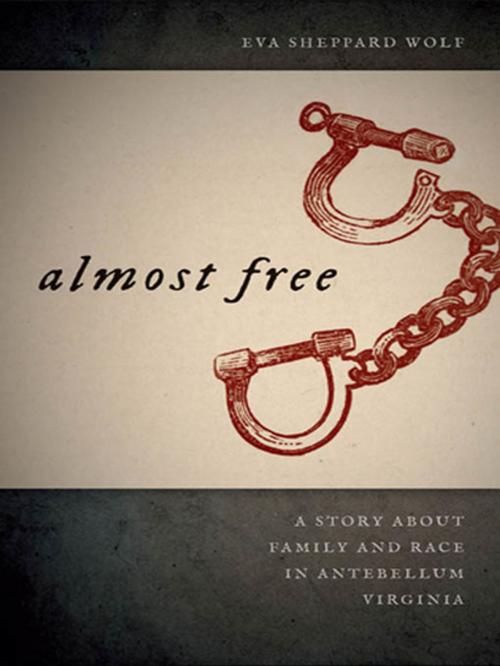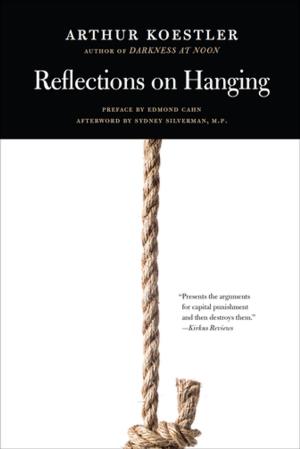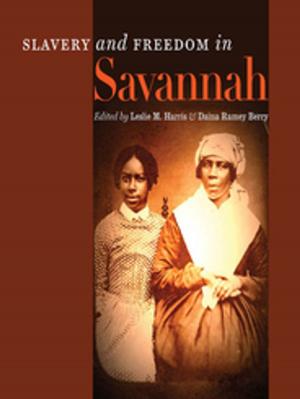Almost Free
A Story about Family and Race in Antebellum Virginia
Nonfiction, Social & Cultural Studies, Social Science, Discrimination & Race Relations, History, Americas, United States, 19th Century| Author: | Eva Sheppard Wolf, Manisha Sinha, Patrick Rael | ISBN: | 9780820343648 |
| Publisher: | University of Georgia Press | Publication: | June 1, 2012 |
| Imprint: | University of Georgia Press | Language: | English |
| Author: | Eva Sheppard Wolf, Manisha Sinha, Patrick Rael |
| ISBN: | 9780820343648 |
| Publisher: | University of Georgia Press |
| Publication: | June 1, 2012 |
| Imprint: | University of Georgia Press |
| Language: | English |
In Almost Free, Eva Sheppard Wolf uses the story of Samuel Johnson, a free black man from Virginia attempting to free his family, to add detail and depth to our understanding of the lives of free blacks in the South.
There were several paths to freedom for slaves, each of them difficult. After ten years of elaborate dealings and negotiations, Johnson earned manumission in August 1812. An illiterate “mulatto” who had worked at the tavern in Warrenton as a slave, Johnson as a freeman was an anomaly, since free blacks made up only 3 percent of Virginia’s population. Johnson stayed in Fauquier County and managed to buy his enslaved family, but the law of the time required that they leave Virginia if Johnson freed them. Johnson opted to stay. Because slaves’ marriages had no legal standing, Johnson was not legally married to his enslaved wife, and in the event of his death his family would be sold to new owners. Johnson’s story dramatically illustrates the many harsh realities and cruel ironies faced by blacks in a society hostile to their freedom.
Wolf argues that despite the many obstacles Johnson and others faced, race relations were more flexible during the early American republic than is commonly believed. It could actually be easier for a free black man to earn the favor of elite whites than it would be for blacks in general in the post-Reconstruction South. Wolf demonstrates the ways in which race was constructed by individuals in their day-to-day interactions, arguing that racial status was not simply a legal fact but a fluid and changeable condition. Almost Free looks beyond the majority experience, focusing on those at society’s edges to gain a deeper understanding of the meaning of freedom in the slaveholding South.
A Sarah Mills Hodge Fund Publication
In Almost Free, Eva Sheppard Wolf uses the story of Samuel Johnson, a free black man from Virginia attempting to free his family, to add detail and depth to our understanding of the lives of free blacks in the South.
There were several paths to freedom for slaves, each of them difficult. After ten years of elaborate dealings and negotiations, Johnson earned manumission in August 1812. An illiterate “mulatto” who had worked at the tavern in Warrenton as a slave, Johnson as a freeman was an anomaly, since free blacks made up only 3 percent of Virginia’s population. Johnson stayed in Fauquier County and managed to buy his enslaved family, but the law of the time required that they leave Virginia if Johnson freed them. Johnson opted to stay. Because slaves’ marriages had no legal standing, Johnson was not legally married to his enslaved wife, and in the event of his death his family would be sold to new owners. Johnson’s story dramatically illustrates the many harsh realities and cruel ironies faced by blacks in a society hostile to their freedom.
Wolf argues that despite the many obstacles Johnson and others faced, race relations were more flexible during the early American republic than is commonly believed. It could actually be easier for a free black man to earn the favor of elite whites than it would be for blacks in general in the post-Reconstruction South. Wolf demonstrates the ways in which race was constructed by individuals in their day-to-day interactions, arguing that racial status was not simply a legal fact but a fluid and changeable condition. Almost Free looks beyond the majority experience, focusing on those at society’s edges to gain a deeper understanding of the meaning of freedom in the slaveholding South.
A Sarah Mills Hodge Fund Publication















